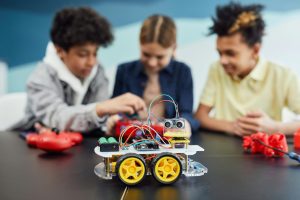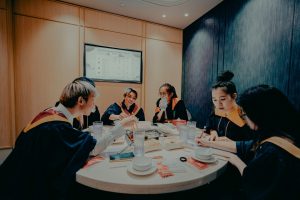How Cultural Intelligence Enhances Educational Experiences
Education is a fundamental pillar of human development and progress. It shapes our knowledge, skills, and abilities, equipping us with the necessary tools to succeed in life. However, as the world becomes increasingly globalized, it is essential to recognize that education is not a one-size-fits-all approach. With the rise of diverse cultures and backgrounds, it has become imperative to enhance the educational experience by incorporating a cultural intelligence lens. In this article, we will explore how cultural intelligence can enrich educational experiences and equip learners with the essential skills to thrive in a multicultural society.
The Importance of Cultural Intelligence in Education
Cultural intelligence, or cultural quotient (CQ), refers to an individual’s ability to understand and adapt to various cultural contexts. It encompasses cultural awareness, mindfulness, and adaptation skills that enable individuals to interact effectively with people from diverse backgrounds. In today’s globalized world, where multiculturalism is the norm, cultural intelligence is a vital tool for success, including in education.
As educators, our responsibility goes beyond imparting knowledge; we must also equip our students with the necessary skills to become global citizens. This skillset includes being culturally competent, which means being able to understand, respect, and empathize with cultures different from our own. With cultural intelligence, students can develop a deeper understanding and appreciation of diverse perspectives, leading to enhanced educational experiences.
Cultural Intelligence in the Classroom
Incorporating cultural intelligence in the classroom goes beyond teaching about different cultures and customs. It involves creating an inclusive learning environment that welcomes diversity and fosters cultural competency. Below are some ways educators can enhance educational experiences through cultural intelligence.
1. Promote Cultural Awareness
The first step in enhancing educational experiences through cultural intelligence is promoting cultural awareness. This involves creating opportunities for students to learn and appreciate cultures different from their own. Educators can achieve this by incorporating diverse perspectives in their teaching materials, inviting guest speakers from various cultural backgrounds, and organizing cultural events and celebrations.
2. Encourage Mindful Communication
An essential aspect of cultural intelligence is mindful communication. This refers to the ability to listen, understand, and communicate effectively with individuals from diverse cultures. As educators, it is vital to encourage students to engage in open and honest communication, instilling a sense of mutual respect and understanding.
3. Foster Intercultural Competence
Intercultural competence is the ability to understand and adapt to unfamiliar cultural contexts. With cultural intelligence, students can develop this skill, making them more equipped to thrive in a diverse society. Teachers can foster intercultural competence by encouraging students to participate in activities that expose them to different cultures, such as study-abroad programs, cultural exchange programs, and volunteer work in diverse communities.
4. Address Stereotypes and Prejudices
Stereotypes and prejudices are barriers to cultural intelligence and can hinder the educational experience. As educators, we must address these issues by providing a safe and inclusive learning environment where students can openly discuss and challenge stereotypes and biases. By doing so, students can develop a better understanding and appreciation of different cultures.
The Benefits of Incorporating Cultural Intelligence in Education
Integrating cultural intelligence in education has several benefits for students, teachers, and society as a whole. Some of these benefits include:
1. Increased Cultural Competency
By fostering cultural intelligence, students develop a deeper understanding of diverse cultures and perspectives, leading to increased cultural competency. This skillset is essential in a multicultural society, enabling individuals to communicate and collaborate effectively with people from different backgrounds.
2. Enhanced Critical Thinking Skills
Cultural intelligence also promotes critical thinking skills by exposing students to a variety of viewpoints. This allows them to analyze and evaluate information from different perspectives, leading to a more well-rounded and informed perspective.
3. Improved Communication and Collaboration
Cultural intelligence helps students develop effective communication and collaboration skills, which are essential in today’s interconnected world. By learning to communicate and work with people from diverse backgrounds, students can build strong relationships and foster a sense of global citizenship.
4. Preparation for the Future
Incorporating cultural intelligence in education prepares students for a future where diversity is the norm. In a globalized world, it is essential to have individuals who are culturally competent and can work effectively with people from diverse backgrounds. By enriching educational experiences through cultural intelligence, we are equipping students with the necessary skills for success in a global society.
Conclusion
Incorporating cultural intelligence in education is crucial for preparing students for success in a diverse and interconnected world. By promoting cultural awareness, mindful communication, and fostering intercultural competence, we can enhance the educational experience for all students. With this skillset, students can become culturally competent, critical thinkers, and effective communicators, making them valuable members of a global society. As educators, it is our responsibility to provide a learning environment that cultivates cultural intelligence and prepares students for the challenges and opportunities of the future.











